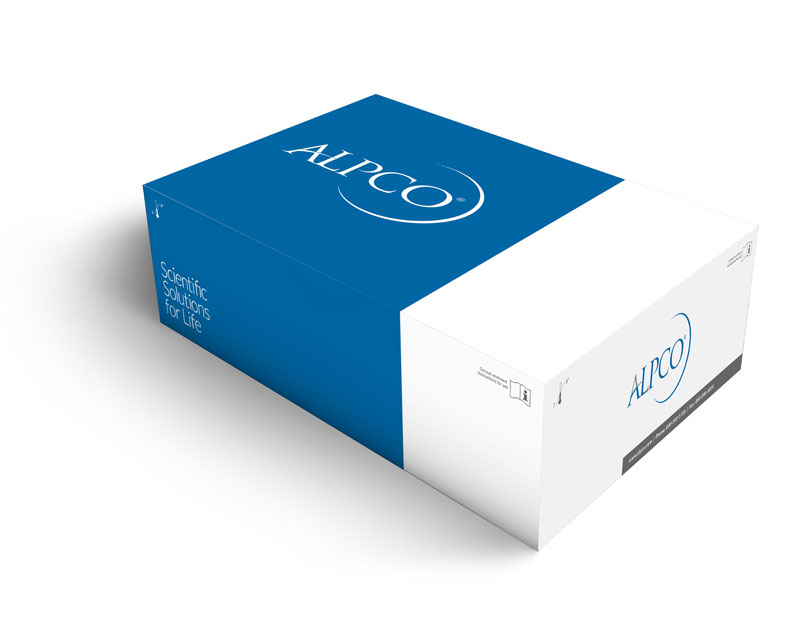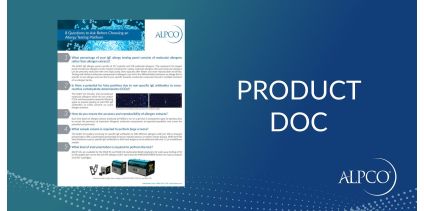Acylated Ghrelin ELISA
The Acylated Ghrelin ELISA is for the quantitative determination of acylated ghrelin in human plasma. For Research Use only. Not For In Vitro Diagnostic Use.
Dynamic range
1.95-250 pg/mL
Sensitivity
0.8 pg/mL
Sample type
Plasma
Ghrelin is a 3.5 kDa protein shown to be involved in the regulation of many physiological processes including memory retention, sleep, insulin secretion, food intake, fat utilization, and release of cytokines.
Ghrelin is present in the peripheral circulation in two forms: acylated and non-acylated. The Acylated Ghrelin ELISA specifically measures the acylated form of ghrelin. The Acylated Ghrelin ELISA is based on a double-antibody sandwich technique; the Wells of the plate supplied with the kit are coated with a monoclonal antibody specific to the C-terminal part of ghrelin. This antibody will bind to any ghrelin introduced into the wells (standard or sample). The AChE - Fab` conjugate which recognizes the N-terminal part of acylated ghrelin is also added to the wells. This allows the two antibodies to form a sandwich by binding on different parts of the human acylated ghrelin. Each kit contains ghrelin (acylated) AChE-Fab` conjugate, human acylated ghrelin standard, human acylated ghrelin quality control, Ellman’s reagent, EIA buffer, wash buffer, Tween 20, plates pre-coated with anti-ghrelin mouse monoclonal antibody, and complete instructions.







